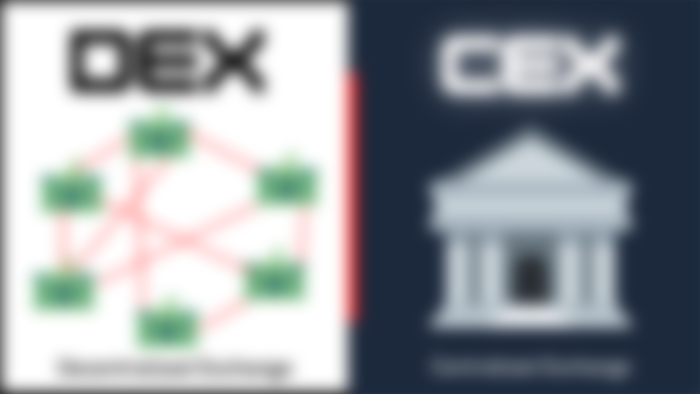Normie Series: What Is a DEX and How Does It work?

To understand what a DEX means, a good place to start is the meaning of the word, what an Exchange is in the finance world, and then on to what a DEX is.
The Word - Exchange
The Merriam-Webster Dictionary defines Exchange as “the act of giving or taking one thing in return for another”. This means many things can be exchanged including ideas, money, etc. Similar words include Swap, Trade, etc.
So What is An Exchange in the Finance World
According to Investopedia – An Exchange “is a marketplace where securities, commodities, derivatives and other financial instruments are traded”. In other words, an exchange is a place where people meet to trade, either in a physical location or via an electronic platform(Internet). The keyword is Marketplace where people exchange stuff.
An Exchange will typically specify the characteristics of the items that they like to change and in what form or sizes for example Stock Exchanges sometimes require companies to meet a minimum threshold to be listed on their exchange. The advent of cryptocurrencies has seen the rise of a new kind of exchange focused on digital assets /cryptocurrencies..
Digital Asset-Focused Exchanges
This kind of exchange started in 2012 and they mainly exchange cryptocurrency and tokens. You will usually find many Cryptocurrencies and tokens on one blockchain. There are many different blockchains each with its own sets of cryptocurrencies, just as you will find a currency in a country and there are many countries each country with its currency
Only Cryptocurrencies and tokens on the same blockchain can be exchanged for each other although this is changing. To execute these exchanges you can either use a
1. Centralized Exchange (CEX) OR
2. Decentralized Exchange(DEX)
Keyword- Centralized. According to Binance Academy- When a system is centralized, it means that the planning and decision-making mechanisms are concentrated at a particular point within the system.

A Centralized Exchange (CEX)
According to Business Matters - A centralized exchange is operated or controlled by a single authority. It is responsible for executing transactions, holding ledgers, securing user data, and much more. CEXs are custodial. They hold user funds and digital currencies on the exchange and act as the central authority that verifies and authorizes all transactions. In addition, they also take care of the financial infrastructure as a whole and provide a wide range of services
This form of exchange is similar to traditional asset exchanges like stock exchanges. Examples of traditional exchanges include the New York Stock Exchange and the London Metal Exchange. In the crypto sector, CEXs include Binance, Coinbase, Gemini, and Kraken.
A Decentralized Exchange(DEX)
According to decrypt.io - Decentralized exchanges allow people to swap crypto tokens directly with each other. DEXs allow trading without an intermediary and users don’t need to give up custody of their coins. However, you are responsible for the security of your digital assets.
On a decentralized exchange, peer-to-peer (P2P) trades are facilitated by smart contracts. Smart contracts are simply tamper-resistant programs on the blockchain that automatically self-execute upon certain conditions being met.
A DEX smart contract is custom-tailored to efficiently match crypto buyers and sellers, once a match is found the transaction is executed from one person to person without an intermediary and withholding of any party’s digital assets. Source Defiplus
DEX is relatively new, but they’re recording rapid growth. The first modern DEX, Bancor, started in 2017, others include Balancer, Curve, Uniswap, and Sushi.
The Differences Between a DEX and CEX adapted from Business Matters

According to Coindesk, Exchanges are the most valuable businesses in the crypto world, according to a 2021 report by global accountancy KPMG. And that as of February 2022, CEXs are still far more common than decentralized exchanges (DEXs). KPMG found that they accounted for around 95% of exchange crypto trading. The largest crypto exchange in the world is Binance, which is centralized.


